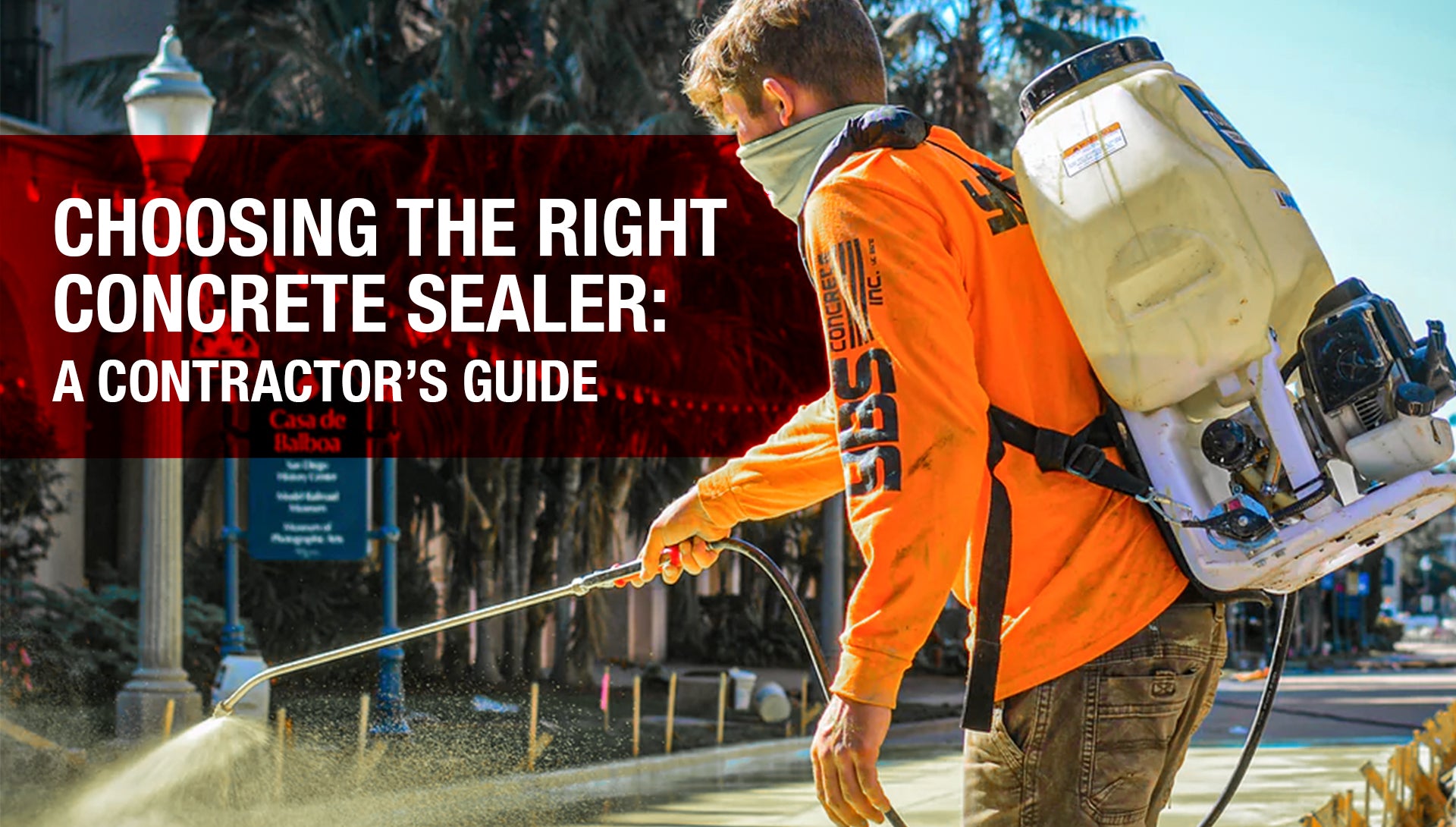As a concrete contractor, selecting the right sealer is critical for protecting and enhancing the appearance of your concrete projects. With a wide range of sealers available on the market, choosing the best option can be overwhelming. In this blog post, we'll provide a comprehensive guide to help contractors like you navigate the selection process and choose the ideal concrete sealer for your specific needs.

Photo by Simon Marsault
Understand the Types of Sealers:
Before selecting a concrete sealer, it's essential to understand the different types available. Common types include penetrating sealers, acrylic sealers, epoxy sealers, and polyurethane sealers. Each type offers unique benefits and is suitable for different applications, so familiarize yourself with their properties and characteristics.
Consider Project Requirements:
Assess the specific requirements of your concrete project, such as the type of surface (e.g., stamped concrete, exposed aggregate, stained concrete), exposure to traffic or chemicals, and desired aesthetic finish. Different sealers offer varying levels of protection, durability, and appearance enhancement, so choose one that aligns with your project goals.

Photo by Sven Mieke
Evaluate Performance Characteristics:
When comparing sealers, consider their performance characteristics, such as resistance to UV exposure, water repellency, abrasion resistance, and ease of maintenance. Assessing these factors will help you determine which sealer is best suited to withstand the environmental conditions and usage requirements of your project.
Determine Application Method:
Some sealers are designed for spray application, while others are applied with a roller or brush. Consider the preferred application method for your project and choose a sealer that is compatible with your equipment and workflow. Additionally, ensure that the sealer is easy to apply and provides consistent coverage for optimal results.

Tomahawk 6.5 Gallon Backpack Concrete Sprayer
Prioritize Long-Term Durability:
Longevity is a crucial factor when selecting a concrete sealer. Look for sealers that offer long-term durability and performance, minimizing the need for frequent reapplication and maintenance. High-quality sealers may come with extended warranties and provide superior protection against staining, weathering, and wear.
Test Compatibility and Appearance:
Before applying a sealer to the entire concrete surface, conduct a small test area to assess compatibility and appearance. This allows you to confirm that the sealer achieves the desired finish and does not cause any adverse reactions or discoloration. Testing also provides an opportunity to fine-tune application techniques for optimal results.
Review Application Guidelines:
Follow the manufacturer's application guidelines and recommendations to ensure proper application and curing of the sealer. Pay attention to surface preparation requirements, application temperature ranges, and curing times to maximize the effectiveness of the sealer and avoid potential issues.
Conclusion:
Choosing the right concrete sealer is essential for protecting and enhancing the longevity and appearance of your concrete projects. By understanding the different types of sealers, assessing project requirements, evaluating performance characteristics, and following proper application guidelines, you can confidently select the ideal sealer for your specific needs. Prioritize durability, compatibility, and long-term performance to achieve exceptional results and customer satisfaction in your concrete endeavors.










